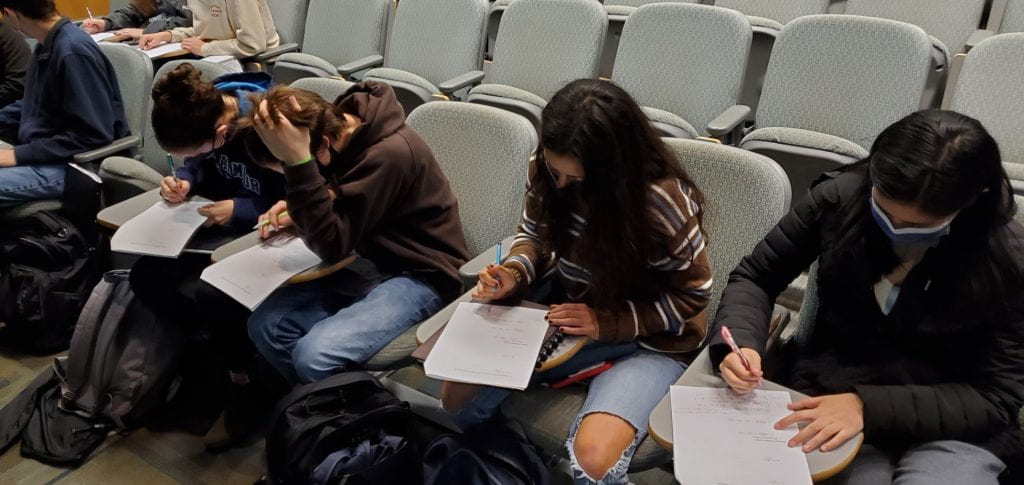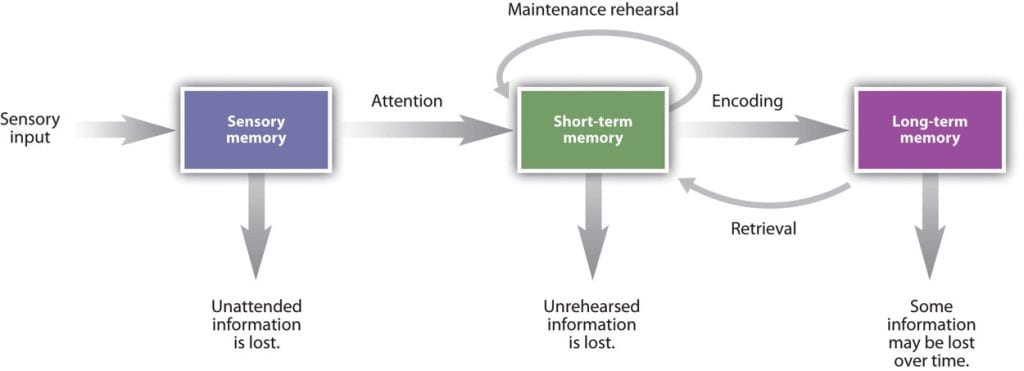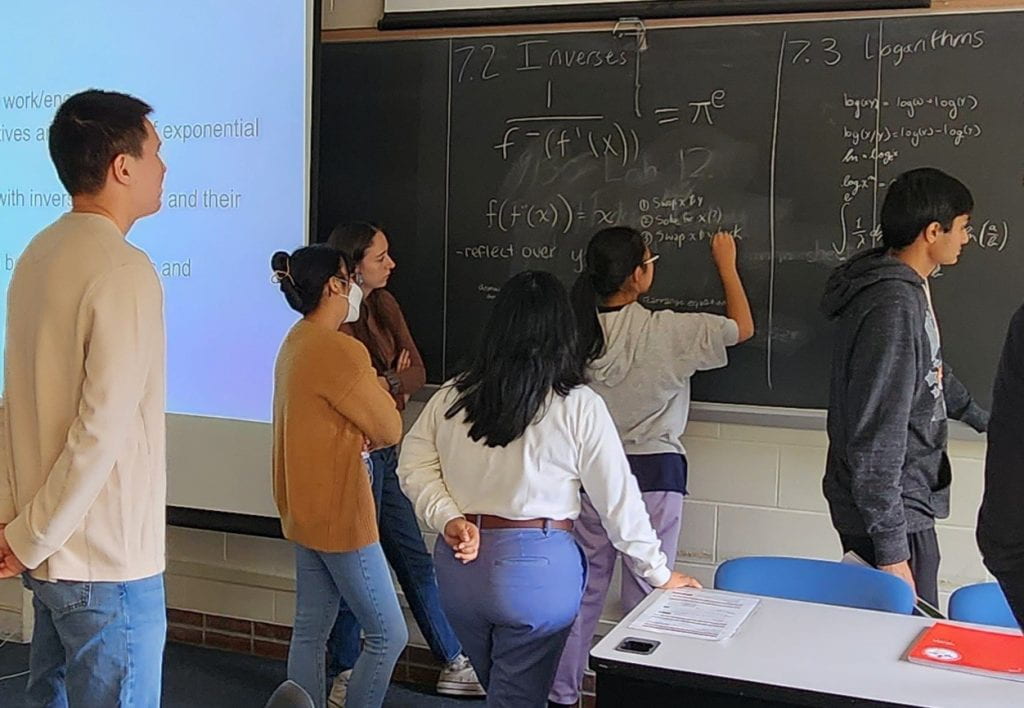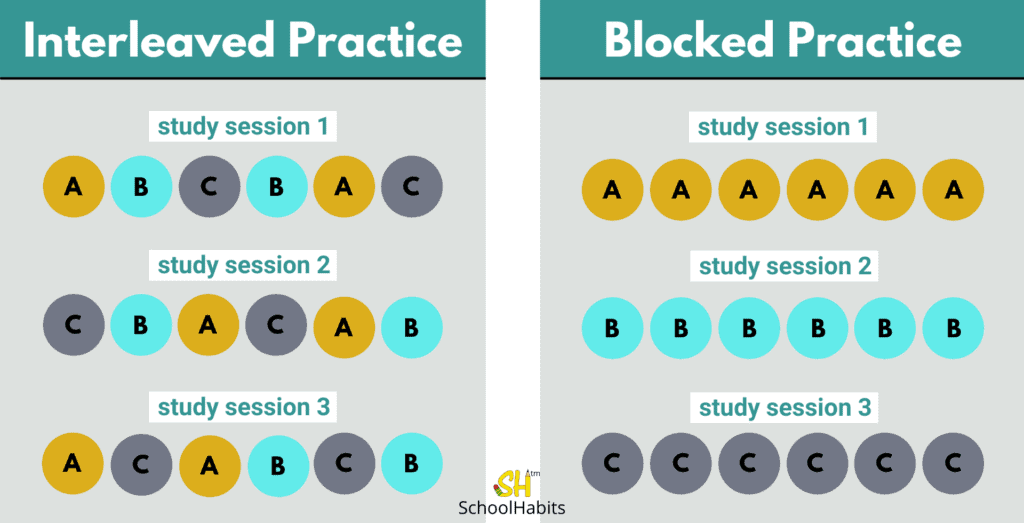
Many of us have experienced that doing well on an exam, may not mean all that information we used to successfully answer the questions on the test is retained. Both remembering and forgetting are physiological processes likely driven by the need to prioritize bits of the massive amount of information to which we are exposed. While the science and biology of forgetting is an emerging and large part of the story that dictates what information ends up in our long, long-term memory, this post will focus on ‘remembering’ and practices that are shown to support it.
As finals time approaches in colleges and universities, there is still some time to structure study practices so that we not only remember and can use information from early in the semester and perform well on the final assessment, but that we are also more likely to take that remembered information (learning) forward so that it can be recalled and used long into the future. Program curricula are structured with the expectation of a high degree of pre-requisite learning from previous courses. So, practices that help to reinforce the neurological pathways that allow us to store and access information, not only support success on the final exams in the short-term, but also support more effective building of disciplinary knowledge throughout our chosen programs. The implications of these long-term effects of effective study deserve more consideration as motivations for adopting the strategies shared here.
What are the basic stages of memory?
Memory is more complex than this but here are the basics:

Sensory memory – subconsciously gathers information from the senses (allows time for your brain to process incoming information from the senses (retention is generally less than 1 second)
Short-term memory – if a sensation (visual, auditory, tactile) is attended to, it can move into this version of memory. Without further attention, this will be lost within seconds.
Long-term memory – Storage of information for longer time periods (retention is hours, days, months or years)
For learning to be effective, we want the information that we hope to use into the future to be transformed into memory, and specifically the kind that will be available to us for a long time. There are some practices that can be used to improve the likelihood of taking information with you into the future, for example, into a course for which this information is pre-requisite! These practices can be incorporated into course and assignment design by instructors, and they can be incorporated into personal study habits.
What can you do to make learning stick?
Here we summarize a set of study practices to promote long-term memory.

Retrieval Practice – referred to as ‘free recall’, ‘blank page testing’ or ‘brain dumps’. This practice simply entails writing down all you can remember associated with a particular topic or learning objective. Retrieval is particularly valuable as a way of finding out what you know and what you don’t know well enough… yet. The focus and cognitive struggle to pull those memories to the forefront is the practice that helps create those neurological changes that reinforce pathways in the brain to keep information accessible for longer time.
Collaborative learning – has been shown to improve learning outcomes because of the opportunity to share knowledge, fill in blanks for each other, reflect and share strategies and perspectives among learners. After some individual retrieval time, compare and discuss your individual sets of information with other learners, remind each other of ideas that may have been missed by making a collaborative braindump. Then individually and collectively, identify the most challenging pieces of the topic so they can be the focus of more practice. While the research on the value of collaborative recall is complex and can be very dependent on context and structure of the collaboration, according to a meta-analysis on the topic by Marion and Thorley, 2016:
“Generally, collaborative remembering tends to benefit later individual retrieval.”
When collaborating in study groups, intersperse opportunities to recall and reflect on information and process individually, with small-group collaboration to fill in knowledge gaps, teach and quiz each other, and work through and discuss the process in problem solving. End each session with a reflection on what you learned, what you know, and where you need to continue to work. This reflection requires retrieval of the information immediately after learning it and thus can improve long-term remembering
Spacing and mixing-up (interleaving) topics for Retrieval Practice
Two more critical concepts related to your retrieval of information and other active approaches to working with material during study are interleaving and retrieval spacing.
Interleaving is simply the idea of devoting short periods of focused, active time (not simply re-reading notes, etc) on one subject and then switching to another, or to several topics, and then, after a break, returning to the first and cycling through again. This can be done during a 3 hour study session where you alternate 35-45 minute chunks of working on 3 different topics (with short breaks between), to designing a weekly schedule for a set of 5 different topics spread across daily study sessions and re-organized and revisited several times across a week. As is common with active and collaborative learning strategies, even though assessments show students benefit from these practices, students find it difficult and thus do not ‘feel’ that it is working. Unfortunately, the bit of extra cognitive struggle required to shift gears and retrieve information multiple times, is the very reason it works. Treading the same path multiple times across a study session, a week, and a semester, is what leaves the traces in our brains that allow us to find our way back to that knowledge over time.
“Over 8 weeks, students in two lecture sections of a university-level introductory physics course completed thrice-weekly homework assignments, each containing problems that were interleaved (i.e., alternating topics) or conventionally arranged (i.e., one topic practiced at a time). On two surprise criterial tests containing novel and more challenging problems, students recalled more relevant information and more frequently produced correct solutions after having engaged in interleaved practice (with observed median improvements of 50% on test 1 and 125% on test 2). Despite benefiting more from interleaved practice, students tended to rate the technique as more difficult and incorrectly believed that they learned less from it.”
Samani and Pan, 2021
Here is a schematic representing the more effective ‘interleaved practice’ with the more common ‘blocked practice’ schedule

Spacing of retrieval practice refers to the amount of time between revisiting a topic and working with it for a 2nd, 3rd and even 4th time before an exam. A really thorough and accessible resource for implementing spaced retrievel from the University of Iowa concludes that the time between retrieving and working with the same information matters much less than making sure it happens over time before the time of the assessment. A good rule of thumb is ‘touching’ the material 3-5 times over a week, several weeks, or even the period of a full semester is beneficial to retention of knowledge.
It is the time of year where the focus of learning moves toward being successful on those cumulative final exams in each course. There is still time to implement these practices on your own and to share them with like-minded collaborators. In the long-run, these strategies will allow students to be better prepared to move through a scaffolded curriculum in a disciplinary program, get the most out of individual courses, and lay the groundwork of concepts and knowledge that will make them more prepared to build on the next layer of learning in future courses or in chosen pathways beyond an undergraduate education.
Hope these help! Finish Strong!